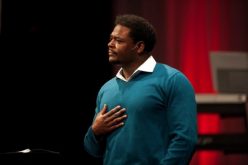By Charles Etukuri-(THE NEW VISION)The church is regarded as a holy place, so one would expect that whoever goes there has to be at their best behaviour. But this is not the case. Nowadays, it is not strange to hear the clergy warning the congregation to guard their property because “not all of us have come to pray”.
Even before we could settle down for the requiem mass of our colleague Thomas Pere, Rev. Sam Ruteikara of All Saints Cathedral sounded a warning:
“Brethren, please be careful with your possessions. Some people come to church with the intention of stealing.”
Welcome to the new wave of criminals who are now shifting their bases to churches, weddings and funerals.
Several church leaders Sunday Vision talked to, say they have registered several complaints which range from car vandalism, theft of phones, bags and offertory, among other valuables.
“You just cannot trust that neighbour next to you,” Ruteikara says.
Asked how big the problem is, Ruteikara says: “There is a problem, but I cannot say it is very big. The fact that people are losing their valuables in churches, weddings and funerals should be worrying enough. Sometimes when I am presiding over services and I hear cases of lost phones or handbags, I feel so touched.
“It is because of this that we are forced to remind the congregation to be cautious about their neighbours,” he says. Ruteikara adds that in most cases, Christians in church trust each other so much, thinking they have all come to worship. Some go to the extent of leaving their valuables like phones and bags behind as they go to either receive Holy Communion or give offertory.
His views are shared by Pastor David Balaba of the Iganga Pentecostal Church, who says gullibility is the biggest problem. “Most of the Christians think that those who come to church are well-intentioned. So they entrust their possessions with the neighbour in certain cases,” he says.
Balaba also says in most cases, people with criminal intentions think that Christians have a lot of money.
Because of the increasing number of thefts, churches have now devised new means of constantly warning the congregation. For instance, at All Saints Cathedral, warnings are sounded before prayers start and the reminders keep on going throughout the service, telling the congregation to keep watch over their items.
But despite these warnings, cases of stolen items and vandalised cars continue to be reported. “Sometimes we arrest the culprits and hand them over to the Police,” Ruteikara says.
According to Bishop David Kiganda, the problem exists more in churches where majority of the congregation are not born-again Christians. But he does not rule out the existence of the vice in the born-again churches.
“According to the Bible, where children of God gather, even Satan joins them to try and win some souls. The devil is out to kill, steal and destroy. His main purpose is to keep getting numbers and he will do it even when it means going to the church,” he says.
Kiganda adds that the Church is not like heaven where you only expect pure souls.
“You compare it to a hospital where not all the patients get healed at once. Out of the 12 disciples who were so close to Jesus, at least one of them, Judas Iscariot, turned out to be a thief. He was closer to Jesus, but his character had not changed,” he says.
Sunday Vision met one of the reformed former thieves at Holy Power Centre, Naalya. Godfrey Otim confesses that he was in the habit of stealing people’s bags. “I had made it a habit to hop from one church to another stealing phones, bags, offertory, and sometimes vandalising cars, until one day when the pastor preached and I felt he was talking about me. I walked to the pulpit and confessed,” he says.
Some of the thieves target the cash baskets and after putting in a note of a smaller denomination pretend to be looking for change, but pick a bigger note.
“It is because of this that some churches were forced to change their basket collections and where they are open, they tend to be strict with an usher guarding it jealously,” Balaba says.
Balaba adds that some churches have been forced to take extra measures to hire security guards, but says not all the churches can afford to monitor everyone who comes into the house of God for worship, but calls for vigilance among the church members.
Kampala Metropolitan Police spokesperson Ibin Senkumbi also calls for caution. “Be careful when you are in church. Do not trust a stranger,” he says.










